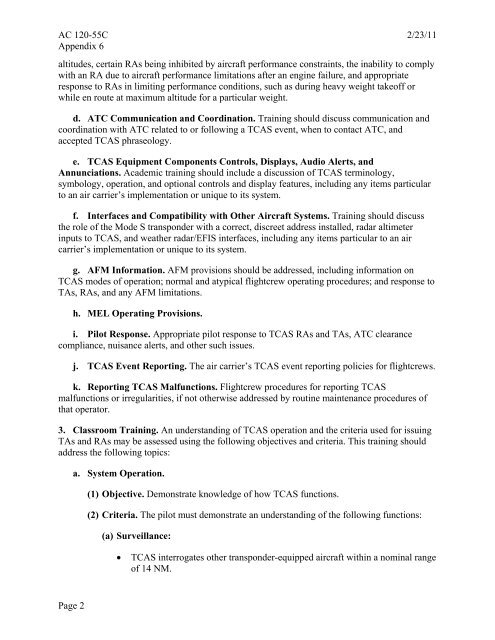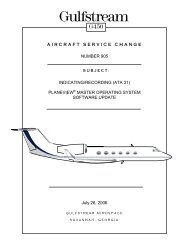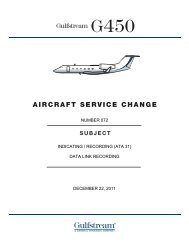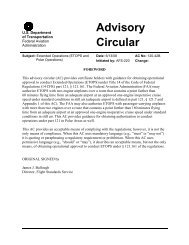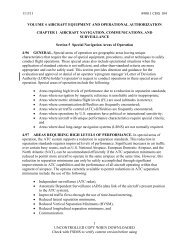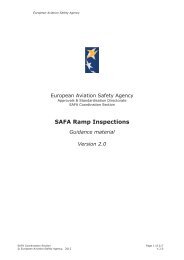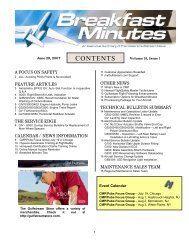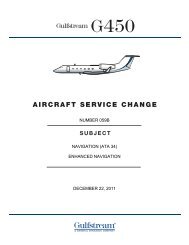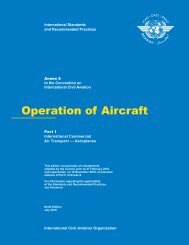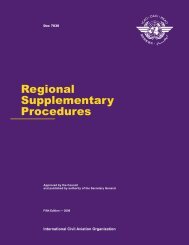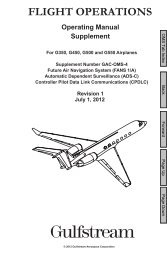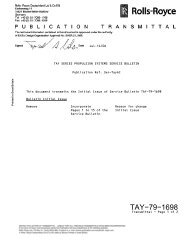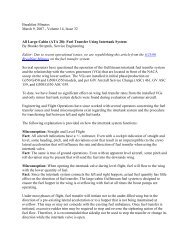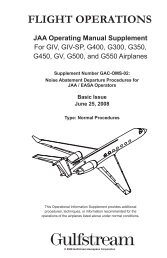AC 120-55C Air Carrier TCAS - Code7700
AC 120-55C Air Carrier TCAS - Code7700
AC 120-55C Air Carrier TCAS - Code7700
Create successful ePaper yourself
Turn your PDF publications into a flip-book with our unique Google optimized e-Paper software.
<strong>AC</strong> <strong>120</strong>-<strong>55C</strong> 2/23/11Appendix 6altitudes, certain RAs being inhibited by aircraft performance constraints, the inability to complywith an RA due to aircraft performance limitations after an engine failure, and appropriateresponse to RAs in limiting performance conditions, such as during heavy weight takeoff orwhile en route at maximum altitude for a particular weight.d. ATC Communication and Coordination. Training should discuss communication andcoordination with ATC related to or following a <strong>TCAS</strong> event, when to contact ATC, andaccepted <strong>TCAS</strong> phraseology.e. <strong>TCAS</strong> Equipment Components Controls, Displays, Audio Alerts, andAnnunciations. Academic training should include a discussion of <strong>TCAS</strong> terminology,symbology, operation, and optional controls and display features, including any items particularto an air carrier’s implementation or unique to its system.f. Interfaces and Compatibility with Other <strong>Air</strong>craft Systems. Training should discussthe role of the Mode S transponder with a correct, discreet address installed, radar altimeterinputs to <strong>TCAS</strong>, and weather radar/EFIS interfaces, including any items particular to an aircarrier’s implementation or unique to its system.g. AFM Information. AFM provisions should be addressed, including information on<strong>TCAS</strong> modes of operation; normal and atypical flightcrew operating procedures; and response toTAs, RAs, and any AFM limitations.h. MEL Operating Provisions.i. Pilot Response. Appropriate pilot response to <strong>TCAS</strong> RAs and TAs, ATC clearancecompliance, nuisance alerts, and other such issues.j. <strong>TCAS</strong> Event Reporting. The air carrier’s <strong>TCAS</strong> event reporting policies for flightcrews.k. Reporting <strong>TCAS</strong> Malfunctions. Flightcrew procedures for reporting <strong>TCAS</strong>malfunctions or irregularities, if not otherwise addressed by routine maintenance procedures ofthat operator.3. Classroom Training. An understanding of <strong>TCAS</strong> operation and the criteria used for issuingTAs and RAs may be assessed using the following objectives and criteria. This training shouldaddress the following topics:a. System Operation.(1) Objective. Demonstrate knowledge of how <strong>TCAS</strong> functions.(2) Criteria. The pilot must demonstrate an understanding of the following functions:(a) Surveillance:• <strong>TCAS</strong> interrogates other transponder-equipped aircraft within a nominal rangeof 14 NM.Page 2


